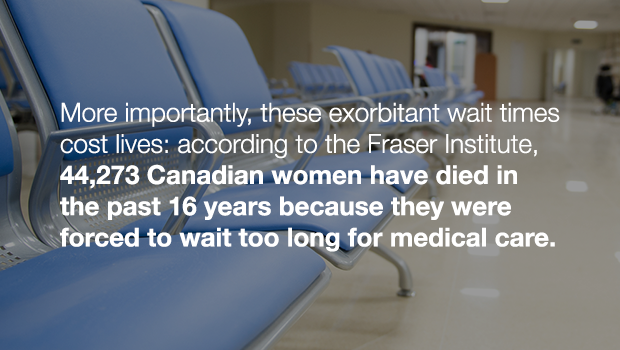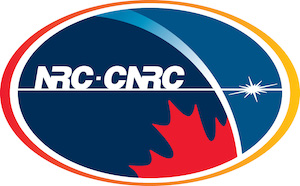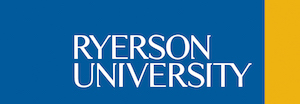
Healthcare Management Systems dramatically reduces patient wait times in clinical settings through cloud-based technology that enlists patients as partners, easing the workload of doctors, triage nurses and porters. HMS enables patients to share Patient Generated Data from Wearables with doctors and streamlines clinical workflow to an incredible degree so that doctors spend less time on administrative tasks and more time treating patients.


Emergency rooms are notorious for insane wait times. And insane it is.

Kind of defeats the purpose of the “emergency” room.
Why is this happening? Because 50 percent of emergency room visits are non-emergency cases. That hits on a deeper issue: five million Canadians don’t even have a family physician. Those five million people don’t know where to go in the case of a non-emergency medical issue.
So they end up at the ER, causing massive delays.
The Cost
ER wait times have serious consequences, both in terms of cost and of life.
Excessive wait times cost taxpayers $3.4 billion per year. That’s not inefficiency- that’s catastrophe.

It’s time to fix this.

Healthcare Management Systems (HMS) is a cloud-based technology that connects patients to doctors via the patient’s smartphone. The app:
- Significantly reduces patient wait time
- Provides alerts for impending heart attack and stroke
- Streamlines clinical workflow
- Avoids communication errors
How? By combining data collected through the app with a sophisticated cloud-based workflow engine in the clinic.

Once a patient downloads the app, she can retrieve a list of nearby hospitals and walk-in clinics, right from the app. It’ll even show her the estimated wait time for each clinic, so no matter where she is in the world, she can always find the nearest clinic with the shortest wait time.
It’ll also provide turn-by-turn GPS directions.
Advanced Registration
Before a patient leaves for the clinic, she can register through the app, eliminating registration on-site. Registration will include critical information like allergies and past drug reactions, averting catastrophic results in the process.

Wearable Data
The HMS app plugs into hordes of the most popular fitness trackers, sending the previous two weeks of health data right to the doctor’s dashboard, including:
- Heart rate
- SpO2
- Blood pressure
- Glucose levels
- Sleeping patterns
No matter where a patient is in the world, her doctor will have access to crucial medical data before she even sets foot in the practice.
That wearable data also serves a second, crucial function: providing alerts for the likelihood of an imminent heart attack or stroke.
HMS’s cloud-based workflow engine puts all of this information in a handy dashboard for doctors to view before the patient arrives. HMS-provided data dramatically increases diagnostic precision while reducing wait time for patients. It also:
- Streamlines clinical workflow
- Improves patient satisfaction
- Avoids communication mishaps
- Reduces clinician alert fatigue

Wait Time Reduction
The most significant impact of the HMS solution is the huge reduction in wait time- that same wait time that costs healthcare providers and taxpayers so much money, and costs some their lives.
- Advanced registration eliminates registration time.
- Patient-generated health data from wearables reduces triage time by at least 50 percent.
- Time to wait for an inpatient bed is reduced by 35 percent with a bed inventory and porter workflow engines.
Those are numbers patients and doctors alike—not to mention healthcare providers—can get behind. HMS is a simple, elegant solution to a pervasive and incredibly costly problem. Healthcare will never be the same.

The HMS system is now in beta, with trials running in collaboration with the National Research Council of Canada, Centennial College and Ryerson University. During the trials, Ryerson University Engineering Department will be conducting Big-data analysis to develop alerts for heart attack and stroke in collaboration with the Natural Sciences and Engineering Research Council of Canada.


 We’ve patented HMS intellectual property in the US, and we’ve partnered with Updox, a US-based patient gateway with access to 30 million patients.
We’ve patented HMS intellectual property in the US, and we’ve partnered with Updox, a US-based patient gateway with access to 30 million patients.
The ball is rolling: Healthcare Management Systems is incredibly close to our initial goals. We’ve come a long way, but we’re just getting started.


 Vino has more than 15 years of R&D experience in IT from Telus Health, Rogers Communication, Ericsson and Nortel Networks. He holds a MASc in Computer Systems Engineering and a BEng in Electrical Engineering from Carleton University, Ottowa.
Vino has more than 15 years of R&D experience in IT from Telus Health, Rogers Communication, Ericsson and Nortel Networks. He holds a MASc in Computer Systems Engineering and a BEng in Electrical Engineering from Carleton University, Ottowa.

 Dr. Struik has more than 20 years of experience in cryptography and data security.
Dr. Struik has more than 20 years of experience in cryptography and data security.

 Dr. Ratnasabapathy has more than 15 years of medical practice experience and currently runs a clinic in the US.
Dr. Ratnasabapathy has more than 15 years of medical practice experience and currently runs a clinic in the US.

 Dr. Yoganathan has more than 25 years of experience in pharmaceuticals.
Dr. Yoganathan has more than 25 years of experience in pharmaceuticals.

 Dominic has more than 20 years of experience in IT, specializing in cognitive and artificial intelligence.
Dominic has more than 20 years of experience in IT, specializing in cognitive and artificial intelligence.

 Dilshan has more than 15 years of experience as a CPA and currently manages a $35 million operation.
Dilshan has more than 15 years of experience as a CPA and currently manages a $35 million operation.

 Brennan has more than 8 years of experience as an ER nurse.
Brennan has more than 8 years of experience as an ER nurse.

 Teri has more than 20 years of experience in the healthcare sector.
Teri has more than 20 years of experience in the healthcare sector.
Healthcare Management Systems dramatically reduces patient wait times in clinical settings through cloud-based technology that enlists patients as partners, easing the workload of doctors, triage nurses and porters. HMS enables patients to share Patient Generated Data from Wearables with doctors and streamlines clinical workflow to an incredible degree so that doctors spend less time on administrative tasks and more time treating patients.
See Campaign: https://www.fundable.com/healthcare-management-systems
Contact Information:
Vino Shan
Rene Struik
Siva Ratnasabapathy
Nathan Yoganathan
Dominic Dimira
Tags:
Fundable, United States, Family, Equity, Consumer, English, Industry verticals, Regions, Types of Crowdfunding deal, Language

Source: icnw

